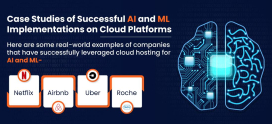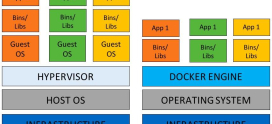
Database Management in the Age of AI
Have you ever felt overwhelmed by the sheer amount of data swirling around us today? It’s like trying to drink from a fire hose! In this fast-paced digital age, the importance of managing data effectively cannot be overstated. So many organizations, whether large corporations or small startups, are struggling to keep their data organized, secure, and accessible. And now, with the rise of artificial intelligence (AI), many might be wondering if there’s any hope of taming this wild beast of information. But don’t worry; you’re not alone in this! Here, we’ll explore how database management has evolved, especially in the context of AI, and provide some practical tips to help you navigate this complex landscape. Get ready to discover how we can harness the power of AI to make database management not just easier, but smarter!
Understanding Database Management
At its heart, database management is all about organizing and maintaining data efficiently. Think of it as the digital filing system for a vast library of information. Just like a librarian who knows where every book is stored, database management ensures that data is easily retrievable when needed.
What is a Database?
A database is a structured collection of information that can be easily accessed, managed, and updated. It can store anything from customer details to financial records. In today’s world, databases are often powered by sophisticated software that allows users to query and manipulate the data quickly and efficiently.
The Role of AI in Database Management
Artificial intelligence is transforming just about every sector, and database management is no exception. Imagine having a highly capable assistant who not only organizes your files but also predicts what you might need next!
Automation of Data Entry
One of the most significant benefits of AI in this context is automation. Manual data entry can be tedious and error-prone. AI helps automate these tasks, significantly reducing the chances of human error. This means your data remains clean and reliable.
Enhanced Data Analytics
With AI, analyzing large volumes of data becomes a breeze. Traditional data analytics can be time-consuming and usually requires skilled personnel. Thanks to AI, even the smallest businesses can harness powerful analytics tools that help derive insights quickly. It’s like having a crystal ball that not only shows you past trends but also predicts future opportunities.
Challenges of AI Integration in Database Management
While the benefits are compelling, integrating AI into database management isn’t without its challenges. It’s essential to be aware of these hurdles to navigate them effectively.
Data Quality Concerns
Even with AI, the quality of the input data matters. Bad data leads to bad outputs. This means organizations must invest time and resources in ensuring their data is accurate and up-to-date before leveraging AI.
Security Threats
As databases become more sophisticated, so do the threats targeting them. Ensuring the security of your data is paramount. When implementing AI systems, companies must consider additional layers of security to protect sensitive information.
The Importance of Security in Database Management
Speaking of security, it cannot be emphasized enough. Just like a locked vault protects a bank’s money, robust security mechanisms are essential for database protection.
Data Encryption
Utilizing data encryption is an effective way to safeguard sensitive information. This process converts data into a code, making it unreadable without the correct decryption key.
User Access Control
Implementing strict user access controls ensures that only authorized personnel can access sensitive data. It’s like giving keys to only trusted employees—blocking unauthorized access protects your assets.
Exploring the Future of Database Management
The future of database management in the age of AI holds exciting possibilities. With continuous advancements in technology, we can expect even more efficient systems and processes.
AI-Driven Databases
Imagine databases that not only store information but can also learn from it. AI-driven databases could adapt to user behaviors, making real-time adjustments to optimize performance. This would revolutionize the way businesses interact with their data.
Increased Collaboration
Cloud-based solutions in conjunction with AI allow for better collaboration among teams. Just picture a digital workspace where everyone accesses the same data, in real-time, no matter where they are!
Best Practices for Effective Database Management
To truly benefit from database management in the AI age, organizations should adopt specific best practices. These strategies will help streamline processes and maximize efficiency.
Regular Backups
Saving your data regularly can be a lifesaver. Just like insurance, having backups ensures you can recover valuable information in case of a system failure or data loss.
Stay Compliant
As data privacy regulations evolve, ensuring your database management practices comply with these laws is crucial. It’s like following traffic rules; without compliance, you could face hefty penalties.
DarazHost: A Role Model in Database Management
When discussing effective database management, it’s worth mentioning DarazHost. They provide robust solutions that incorporate AI to enhance database performance and security. Their commitment to customer support and data integrity makes them a strong player in this field.
FAQs
What is database management?
Database management involves organizing and maintaining data efficiently, ensuring that it can be accessed and updated easily.
How does AI improve database management?
AI enhances database management by automating tasks, providing advanced data analytics, and improving data accuracy.
What are some common challenges in database management?
Common challenges include data quality issues, security threats, and compliance with regulations.
Why is data security important?
Data security is vital to protect sensitive information from unauthorized access and potential breaches.
What is data encryption?
Data encryption is the process of converting information into a secure format that is unreadable without the proper decryption key.
How often should data be backed up?
Data should be backed up regularly, ideally daily or weekly, depending on the volume of changes.
What are the future trends in database management?
Future trends include AI-driven databases, improved collaboration through cloud solutions, and more advanced analytics.
How can I choose a database management service?
Consider factors such as security features, customer support, and how well the service integrates with existing systems.
Is it worth investing in AI tools for database management?
Investing in AI tools can enhance efficiency, reduce errors, and provide valuable insights, making it worthwhile for most organizations.
as data continues to expand at an unprecedented rate, effective database management is more crucial than ever. Embracing AI capabilities in these processes not only enhances efficiency but also empowers organizations to make data-driven decisions with confidence. By adhering to best practices and staying proactive in addressing challenges, businesses can navigate the complexities of database management and unlock new opportunities for growth. Whether you’re a large corporation or a small startup, investing in smart database management strategies today will prepare you for the dynamic data landscape of tomorrow.









